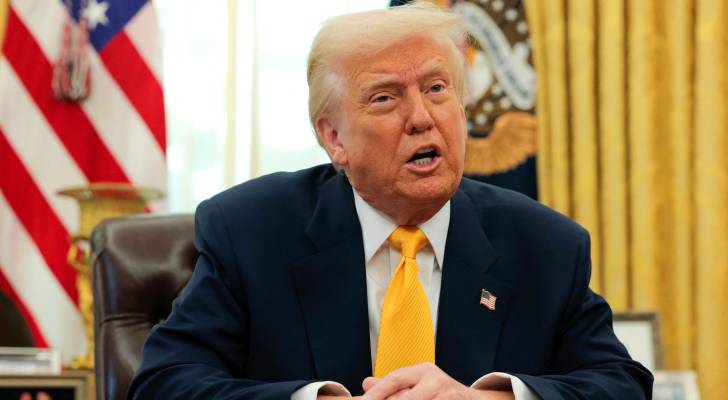TikTok was nearing a critical deadline on Friday to secure a non-Chinese owner or face a potential ban in the United States.
The immensely popular video-sharing application, boasting over 170 million American users, is under pressure from a US law passed last year. This law mandates that TikTok’s Chinese parent company, ByteDance, divest its ownership of the platform or risk being shut down in the US.
US President Donald Trump indicated on Thursday that his administration was “very close” to facilitating a deal to find a buyer for TikTok, mentioning the involvement of “multiple” investors but providing no specific details.
Driven by national security concerns and a widespread belief in Washington that TikTok is ultimately controlled by the Chinese government, the law took effect on January 19, the day before Trump’s inauguration. Leading up to that deadline, TikTok temporarily ceased operations in the United States and was removed from app stores, much to the dismay of its vast user base.
However, President Trump swiftly announced a 75-day extension, and TikTok subsequently restored service for existing users, reappearing in the Apple and Google app stores in February.
This extension is set to expire at midnight (0400 GMT) on April 5. Despite the approaching deadline, Trump has consistently downplayed the likelihood of a TikTok ban, expressing confidence in finding a buyer for the app’s US operations.

The President also hinted that TikTok could potentially be part of a broader agreement with China aimed at easing the significant tariffs he imposed on Beijing as part of a global tariff strategy. When questioned on Thursday about his willingness to make deals with countries regarding tariffs, he responded, “As long as they are giving us something good. For instance, with TikTok.”
He further suggested, “We have a situation with TikTok where China will probably say we’ll approve a deal, but will you do something on the tariffs? The tariffs give us great power to negotiate.”
According to reports, the most probable solution involves existing US investors in ByteDance transferring their stakes into a newly formed, independent global TikTok company.
Additional US investors, including Oracle and the private equity firm Blackstone, would reportedly be brought in to reduce ByteDance’s ownership share.
A significant portion of TikTok’s US operations is already hosted on Oracle servers, and Oracle’s chairman, Larry Ellison, is a known ally of Trump.
The Algorithm Question
Significant uncertainty remains, particularly concerning the fate of TikTok’s highly valuable algorithm. Forrester Principal Analyst Kelsey Chickering emphasised the algorithm’s crucial role, stating, “TikTok without its algorithm is like Harry Potter without his wand — it’s simply not as powerful.” She added that if the TikTok user experience deteriorates, users, creators, and advertisers will likely shift their time and spending to other media platforms.
The New York Times suggested that the new TikTok company could potentially license the algorithm from ByteDance. However, such an arrangement would likely contradict the underlying intent of the US law, which is partly based on the concern that TikTok’s algorithm could be exploited by the Chinese government against US interests.
Other potential bids for TikTok have reportedly emerged, including a last-minute offer from Amazon. Additionally, real estate and sports tycoon Frank McCourt’s Project Liberty initiative launched “The People’s Bid for TikTok.”
Artificial intelligence startup Perplexity also expressed interest, as did a joint venture involving YouTube celebrity MrBeast and a separate bid from the adult content platform OnlyFans.
Despite previously supporting a ban during his first term, Trump has recently adopted a more favourable stance towards TikTok, reportedly viewing its popularity among young voters as a factor that supported him in November’s election.
Notably, one of his major political donors, billionaire Jeff Yass, holds a significant stake in ByteDance.


